- Home
- Kathy Reichs
Bones of the Lost: A Temperance Brennan Novel tb-16 Page 10
Bones of the Lost: A Temperance Brennan Novel tb-16 Read online
Page 10
Slidell slid a toothpick from the right to the left corner of his mouth. “Late seventies.”
A smile tugged at my lips. “You bust some moves here, detective?”
Slidell looked at me as though I’d told him the world was made of Gouda.
What was I thinking? Slidell’s soul probably had liver spots by his sixteenth birthday.
“Who comes here now?” I asked.
“Older assholes.”
“What’s that?” I tipped my head toward the building across the street.
“Back in the day it was a mill of some kind. Been abandoned since the fifties. Rumor was the property was going condo. Project went south, I guess. Now the dump’s mostly a pain in the ass ’cause of squatters.”
For several moments we both evaluated our target.
Save for a Coors sign glowing in the rain-blurred front window, the small brick bungalow might have been a private home. Iron handrails bordered the two stairs leading up to the stoop. A chimney jutted from the far end, suggesting the presence of a fireplace inside.
The front door, once red, and the trim, once white, were faded and peeling. I’d been by this old building. When?
Before Katy had hired on with the Public Defender’s Office she’d briefly tended bar at the Gin Mill, a trendy Irish pub a few blocks over on Tryon. Perhaps I’d taken a wrong turn after dropping her off.
Slidell’s Taurus shared the parking area with a pickup and five cars whose odometers undoubtedly showed very high numbers.
I was about to comment when a man in sweats rounded the building and walked with questionable balance to a white Honda Civic. Slidell and I watched him climb in and drive off.
“Ready?” I asked.
Taking Slidell’s grunt as affirmative, I stepped out into rain that had dwindled to a slow, steady drizzle. All around me were the sounds of dripping water.
After heaving himself free, Slidell hiked his pants, checked the back of his waistband, and rolled his shoulders. A glance left, then right, and he strode onto the stoop and through the door. I followed.
As expected, the tavern’s management invested little in lighting. Or cleaning. The air smelled of stale beer, human sweat, grease, and smoke.
As my eyes adjusted to the dim, my mind logged details about my surroundings. From the tension in his back, I knew Slidell was also assessing.
Wooden tables with unmatched chairs filled the space where we stood. A jukebox rested against the wall to their right. A mirror in a heavy gilt frame hung above and beside it. Beyond them straight ahead a bar formed an L, its short side facing the tables.
I spotted a second entrance far back to the left, opposite the terminus of the L’s long side. At the moment, that door was propped open with a dark shape that looked like a gargoyle or garden troll.
A series of bulletin boards ran along the wall from the rear entrance to the near end of the bar. Above them were painted the words STORY BOARD. On them were tacked at least a billion photos.
To our right, an archway gave onto a room holding roughly a dozen more tables, all empty. A narrow corridor led deeper into the house, presumably to toilets and the kitchen.
A trio in work clothes and steel-tipped boots occupied a four-top in the main seating area. Three hard hats lay at their feet. Three hamburger specials mounded their plates.
Two men and a woman sat at the bar, backs to the photo gallery, empty stools equidistant between them. The men wore hoodies, jeans, and running shoes. Both had logged enough miles to have shagged at the tavern in its Myrtle Beach days. Both were drinking beer.
The woman wore black stretch pants and a pink tee that warned, STOP LOOKING AT MY BOOBS. With her fried gray hair and sagging face she looked old enough to have mothered the men. Her glass held something the color of tea, probably bourbon.
Though the bartender matched Slidell in poundage, his weight was distributed along more orthodox lines. And much more compactly. Maybe five ten on tiptoes, he had rheumy blue eyes and a shaved skull. Tattooed on his forearm was some sort of bird.
Having memorized the layout, Slidell crossed to the bar.
“How’s it going?”
Rheumy eyes continued drying his hands on a rag.
Slidell made a show of looking around. “I see business is booming.”
“What’ll you have?”
Slidell shifted his toothpick. “Little more hospitality?”
“You’re a cop.”
“You’re a genius.”
The three laborers went quiet. The beer drinkers shifted on their stools.
Boob woman eavesdropped unapologetically.
“License is in order.” Rheumy eyes hooked a thumb at the wall behind him.
Slidell placed both palms on the bar, spread his feet, and loomed.
“How ’bout we start with a name?”
“How ’bout we start with some ID.”
Slidell badged him.
Rheumy eyes slid a glance at the shield and looked up at Slidell.
“Name? Or am I starting out with questions too high up the grid?”
“Sam.”
Slidell raised both brows in a go-on expression.
“Sam Poland.”
“How long you been working here, Sam?”
“What’s this about?”
“Whadja do, Sam? Jump some girl’s bones?” Boob woman guffawed at her own wit, then knocked back a slug of her drink.
“Zip it, Linda.” Poland gestured Slidell down the bar, closer to where I’d paused. “Who’s the chick?” Nodding at me.
“Lady Gaga. We’re getting an act together.”
Poland’s jaw muscles bulged, but he said nothing.
“So, Sam. How long you been working at the country club here?”
“Twelve years.”
“Tell me about Dominick Rockett.”
Poland studied the rag in his hands. Up close, I could see they were red and splotchy. I suspected eczema.
“I’m talking to you, dickwad.”
“This is harassment.”
“Rockett drink here?”
Poland shrugged.
“What’s that supposed to mean?”
“A customer looks old enough, I don’t ask for ID.”
“Guy’s face looks like he washed it with a blowtorch. That help?”
“I might’ve seen someone like that.”
“Sitting with John-Henry Story?”
“Who?”
“You know, Sam. I’m starting to think you’re trying to waste my time. People waste my time, they piss me off.”
“Sorry I can’t help.”
“You saying you never heard of John-Henry Story?”
Poland shrugged again.
Moving with astonishing speed for a man of his bulk, Slidell reached out, finger-wrapped Poland’s neck, and brought him forehead to forehead.
Around us the room went totally still.
“I find that odd, Sam. Being Story’s the man used to cut your checks.”
Poland struggled to free his head. Slidell held him like a vise.
“I can walk out to my car and run your name through every system in the city, the county, the state, and the universe. You got an outstanding warrant? Unpaid taxes? Late child-support payment? One single slip, your dick is mine.”
Slidell’s words sent droplets of saliva onto Poland’s face. They glistened blue and green in neon oozing from signage behind the bar.
Even Linda had nothing to say.
Thinking Poland might speak more freely with me out of earshot, and wanting to avoid spittle, I moved toward the bulletin boards and feigned interest in the photos.
The collection looked as if it stretched back beyond the Nixon years. Some snapshots had old-fashioned scallopy edges. Some were standard drug-store-issue prints. Some were Polaroids not holding up well.
I fingered through the layers, digging out an image here and there.
A creased black-and-white showed an old Chevy coupe with whitewall tires, its
fedoraed driver arm-draping the door. A color print featured a kid in a boater with an LBJ hatband. Another captured a Kodak moment inspired by four bare buttocks.
Dozens of pictures dated to the tavern’s Myrtle Beach days. In shot after shot couples danced under looping strands of lights, gathered at tables, or mugged at the lens in shoulder-to-shoulder camaraderie.
There were shots of New Year’s Eve celebrations, balloons festooning the fireplace, ceiling, and walls. Of diners in shorts and sundresses dappled by sunlight at patio tables. Of drunks in green hats, shamrocks, and beads.
Men in coveralls. Women in stilettos and spandex. Couples snugged together like spoons. Businessmen in suits. Twenty- and thirtysomethings in full-body Nike or Adidas. Athletic teams in uniform. Quartets and sextets of college students.
Over the years the fashions and hairstyles changed. Long bangs. Wild perms. Shaved heads. Pierced noses and lips. It was like sifting through layers at an archaeology dig.
Behind me, Slidell continued hammering at Poland. The beer drinkers and Linda remained silent. The workers had resumed conversing in low tones.
As I moved from board to board, I wondered how the collection had come to be.
Whatever its history, the allure had faded in recent years. Few images looked like products of the digital age.
I was at the end of the last board when I spotted Story. Or was it?
Moving discreetly, I pried the tack loose with a thumbnail and studied the photo.
Oh, yeah. Rattus rattus.
Story was beside a woman in a sparkly green halter creating va-va-voom cleavage. Both were raising champagne flutes. She was smiling. He was not.
A blond kid sat one barstool down from the woman, leaning at an angle that suggested at least twenty beers. The date embroidered on his varsity jacket was two years back.
Pumped, I burrowed through more stratigraphy.
Pay dirt.
I knew the terrible price of war. I’d seen images of veterans in full dress uniform, heads high, ravaged faces proud. Speaking at rallies. Arm in arm with their beautiful brides.
I’d been told Dominick Rockett’s burns were severe. Still, I was unprepared.
On the left, Rockett’s brows and lashes were gone, and his forehead hung bulbous over a lidless orbit. His lips were bloated and skewed, and his nostril melted into a cheek the consistency of congealed oatmeal.
On the right, save for hair loss and an unnatural smoothing of the skin, his face appeared normal. A knitted tuque was pulled low on his forehead.
I felt pity as I viewed the destruction. The image in the mirror every morning of Rockett’s life. In his mind when a stranger looked away. When a child stared or screamed in fear.
Dear God. What a price.
My eyes moved from Rockett to the other man sharing his table. Wiry, with gaunt cheeks and small rodent eyes.
Casting a quick glance behind me, I thumbed the second snapshot from the board and slipped both into my purse. Then I crossed back to the bar.
Slidell had released Poland but was still grilling him. The beer drinkers and Boob woman remained focused on their beverages.
“—telling you, man, I don’t know.”
“You don’t know much, do you, asshat.”
After a round of my not so subtle throat-clearing, Slidell graced me with a glance. I tipped my head toward the door.
Slidell frowned, then hit Poland with two more questions. Got more nothing, but the point was made. Dirty Harry was in charge.
Slapping a card on the bar, Slidell gave the usual instruction about phoning. Then we left.
Back in the Taurus, I pulled out the purloined pictures and identified the players. Slidell studied the faces without comment. Which surprised me.
“So Story and Rockett are drinking buddies,” he finally said.
“I don’t know about that. But this proves they’re acquainted.”
“What say we poke at that?”
“Oh, yeah. But remember. Dew doesn’t want Rockett spooked.”
“Right.”
We were rolling before my seat belt clicked home.
ROCKETT LIVED OFF HIGHWAY 51 in one of Charlotte’s far southwestern tentacles. During the first half of the drive, Slidell briefed me on what he’d learned from Poland. Which was practically zip.
After some prodding, the bartender admitted he’d seen the tavern’s owner a few times. Said Story hadn’t been a drinker, hadn’t been interested in getting to know his employees.
Poland had the impression Story usually came with men, and that the visits had been more business than pleasure. Wasn’t sure, since Story hadn’t been a smiley guy.
Poland hadn’t a clue who’d started the photo gallery. Or maintained it. Said the collection traced to well before his tenure.
“Apparently Story and Rockett weren’t all that concerned with discretion.” Throughout the trip, I’d been wondering what that implied.
Slidell turned to me, a Chiclet halfway from his palm to his mouth.
“Meaning?”
“Why allow their picture to be posted on that board?”
“Dumb shits probably didn’t know.”
Maybe.
Thirty minutes after leaving South End, Slidell hooked a left past a sign announcing LES FLEURS. Pretentious, I know. But Charlotteans like their neighborhoods christened.
Houses in Les Fleurs were mostly ranches and split-levels dating to the sixties and seventies. Most had meager square footage, detached garages, and some variation on the theme of pastel siding.
The streets were curving, tree-lined, and named after flowers. As Slidell wound from Marigold to Poppy to Rockett’s address on Azalea Court, I noted that every backyard was fenced, every front lawn mowed and edged. Here and there a bike or scooter lay abandoned on a walkway or propped against a staircase, porch, or foundation.
It was a hood that made you think of kids, dogs, and retirees. What did Harry call houses like these? Starter-ender homes.
Slidell pulled to the curb in a cul-de-sac shaded by two magnolias and a towering pine. Behind each magnolia was a ranch, one salmon, one green. Below and behind the pine was a brown two-story that New Englanders would call a saltbox.
“Anything strike you weird about this place?” Slidell had looped the court to park facing out, and was scanning the street we’d just driven down. His jaw was working double time. The gum was making wet popping sounds.
I followed Slidell’s sight line. Saw nothing but closed doors, blank windows, and a lot of azalea bushes, none in bloom.
“Looks pretty quiet.”
“Damn quiet.”
“We’re on a cul-de-sac in the burbs on a rainy Thursday afternoon.”
“La-dee-da. Cool-day-sac.” Slidell freed his belt. “Guy lives on a freakin’ dead end.”
Flashbulb image. The face in my purse.
I felt a wave of pity, followed by unease. Would Rockett be as disfigured as the snapshot suggested? Was that why he lived on a “freakin’ dead end”?
“Rockett’s place isn’t flashy.”
“Squirrel’s either a piss-poor smuggler or one cagey sonofabitch.”
“Did you check how long he’s lived here?”
“Deed’s been registered in his name since 1991.”
“So he bought the property shortly after his retirement from the military. Mortgage?”
“No.”
“He could have saved up. Or inherited money.”
Slidell worked a molar with a thumbnail, then resumed chewing. “Wonder what the neighbors think of his gardening skills.”
He was right. Maybe it was the perpetual shadow cast by the pine. Maybe lack of interest. The emphatically green lawns to either side ended abruptly at the boundaries of Rockett’s patchwork of dirt and grass.
“Let’s roll.”
“Remember,” I warned. “Dew will be pissed if we goad Rockett into hiring an attorney.”
“Ee-yuh.”
I climbed from the Taurus and
headed toward the house, raindrops gently cooling my face. I focused on the sensation to clear my head.
Of pity for Rockett.
Of thoughts of Katy and IEDs.
The door, painted brown to match the siding, had a black wrought-iron knocker in the shape of a cannon. Slidell banged it. Banged again.
In the distance, traffic hummed on Highway 51. No sound came from inside.
Slidell was about to whack away a third time when a lock rattled. His body tensed as the door swung in.
So did mine.
It had not been a trick of unkind light. And the scarred flesh had experienced no rebirth or restoration since the photo had been taken.
Though the day wasn’t cold, Rockett wore a black knit hat pulled low to the level his brows should have been. The fingers wrapping the doorjamb were waxy and pale and had no nails. Above the hand, the edge of a tattoo winked from the cuff of his long-sleeved tee.
Rockett looked at Slidell, then at me, the left side of his face frozen, the right side crimped in a scowl.
I forced my expression neutral.
Slidell held up his badge. “Charlotte-Mecklenburg PD.”
Rockett’s good eye flicked to the shield, returned to us.
“What do you want?” Gravelly, but deep.
Slidell hit him with the old saw about asking a few questions.
“About what?”
“You want we should do this in front of the neighbors?”
“You see any neighbors?”
Slidell crossed his arms and spread his feet. “Or we could do it uptown.”
“You got a warrant?”
“Should I have a warrant?”
“You tell me.”
The two men locked eyeballs. Which were at about the same level. But Rockett’s neck was thick, his body all muscle. The definition under his tee spoke of hours in a gym.
Mimicking his unwanted caller, Rockett crossed his arms and set his feet wide.
A flush darkened Slidell’s face.
“This really won’t take long.” I smiled, trying to defuse the macho standoff.
“Who the hell are you?” Holding his gaze on Slidell.
“Dr. Temperance Brennan. I—”
“Lady works at the morgue.”
Rockett’s right cheek may have twitched slightly at Slidell’s response. A beat. Then he inhaled through his good nostril, exhaled slowly. I thought he’d send us packing.

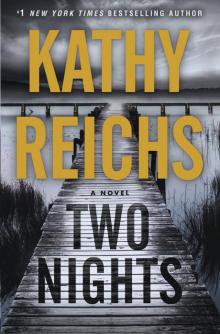 Two Nights
Two Nights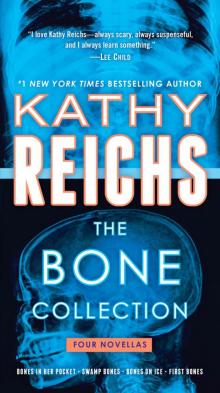 The Bone Collection: Four Novellas
The Bone Collection: Four Novellas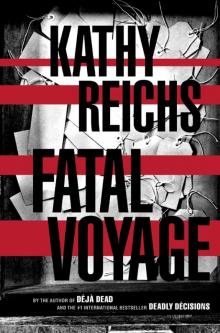 Fatal Voyage
Fatal Voyage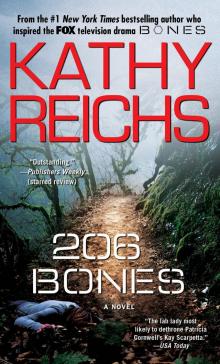 206 Bones
206 Bones Bones to Ashes
Bones to Ashes Terminal
Terminal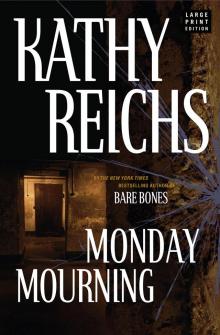 Monday Mourning
Monday Mourning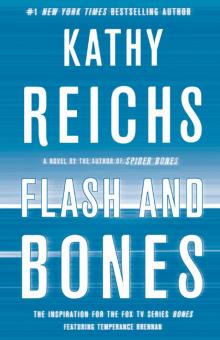 Flash and Bones
Flash and Bones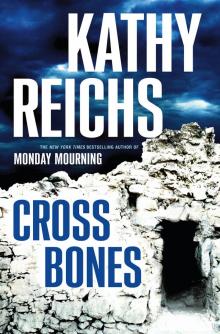 Cross Bones
Cross Bones Devil Bones
Devil Bones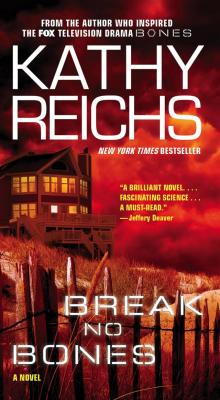 Break No Bones
Break No Bones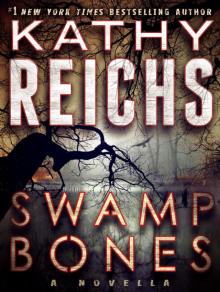 Swamp Bones
Swamp Bones Déjà Dead
Déjà Dead Shock
Shock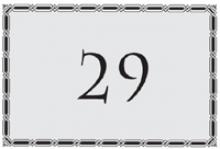 Spider Bones
Spider Bones Death Du Jour
Death Du Jour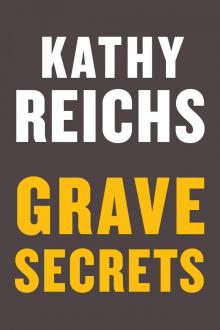 Grave Secrets
Grave Secrets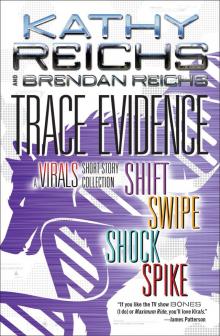 Trace Evidence: A Virals Short Story Collection
Trace Evidence: A Virals Short Story Collection Bones on Ice
Bones on Ice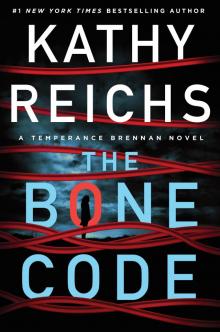 The Bone Code
The Bone Code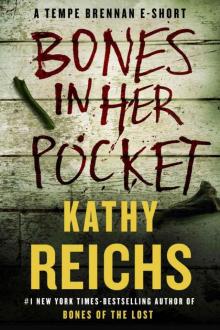 Bones in Her Pocket
Bones in Her Pocket Seizure:
Seizure: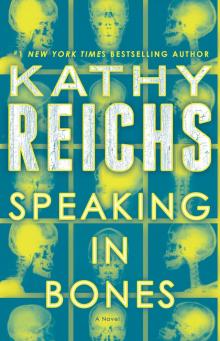 Speaking in Bones
Speaking in Bones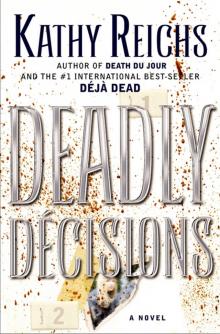 Deadly Decisions
Deadly Decisions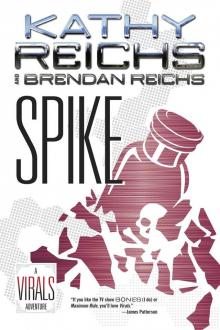 Spike
Spike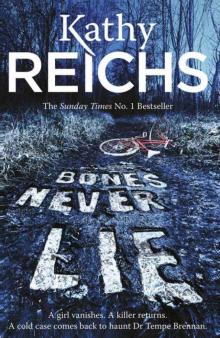 Bones Never Lie
Bones Never Lie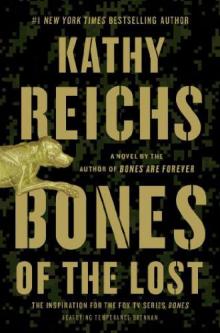 Bones of the Lost
Bones of the Lost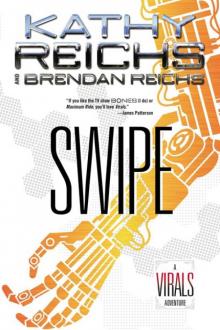 Virals 03.5 - Swipe
Virals 03.5 - Swipe Exposure
Exposure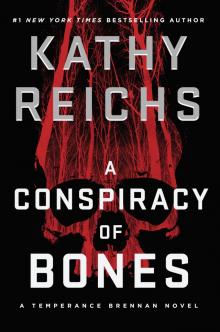 A Conspiracy of Bones
A Conspiracy of Bones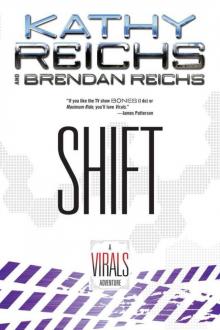 Shift (tory brennan)
Shift (tory brennan)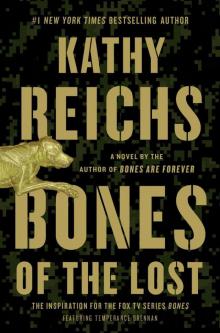 Bones of the Lost: A Temperance Brennan Novel tb-16
Bones of the Lost: A Temperance Brennan Novel tb-16 Virals tb-1
Virals tb-1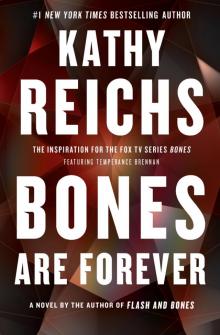 Bones Are Forever tb-15
Bones Are Forever tb-15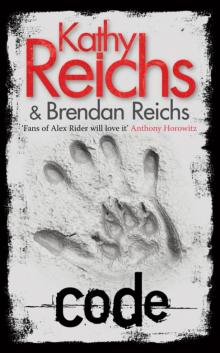 Code tb-3
Code tb-3 Seizure tb-2
Seizure tb-2 Deadly Descisions
Deadly Descisions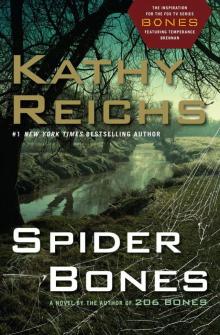 Spider Bones: A Novel
Spider Bones: A Novel